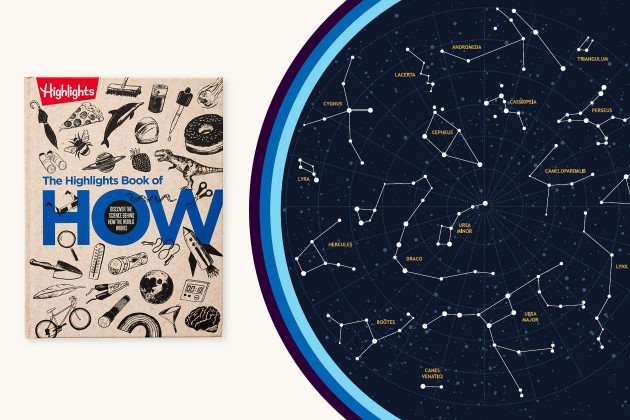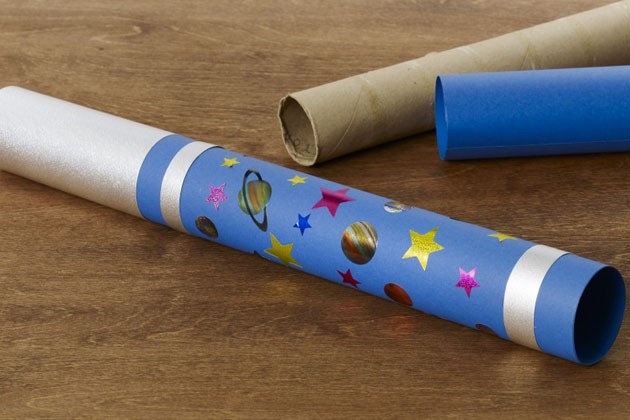Book of How Excerpt: If the Solar Eclipse Ignites Your Kids’ Love of Space
By: Highlights Editorial
“A total solar eclipse plucks a chord deep in the human mind,” writes Highlights Science Editor Andy Boyles in the 2024 April issue of Highlights. Read the full story on the total eclipse happening April 8, 2024 and find answers to questions like “what is an eclipse?” and “when is the next solar eclipse?” and safety tips for solar eclipse activities. This once-in-a-lifetime total solar eclipse will capture imaginations. For some kids, it may be the spark that ignites a lifelong love of the stars. After your solar viewing party is over, and your kid is still hungering for more information about the sky above, here is an activity from the Highlights Book of How that will help them understand constellations.
Constellations are groups of stars that seem to form patterns when viewed from Earth. These stars aren’t necessarily near one another—in fact, they might be separated by millions and millions of miles. But to us on Earth, they all appear to exist in a flat plane in the sky close to each other, and they continuously show up in the same arrangements, or shapes. Due to Earth’s rotation, many of these constellations are only visible at certain times of the year or in certain parts of the world.
Thousands of years ago—at least some 5,500 years before today— people began to imagine that these star patterns looked like familiar shapes. They began to tell stories about these shapes and give them names. Ancient farmers even used the appearance of different constellations throughout the year to keep track of the seasons.
In the ancient Western world, there were at least 48 named constellations. We still use these 48 names today, in addition to 40 more. Many astronomers today recognize 88 constellations, and they usually call them by their Western names, which come from the ancient language of Latin. For example, there’s Leo (the lion), Scorpio (the scorpion) and Pisces (the fish). However, many cultures around the world have names for these constellations in their own languages.
Today, we can still see the star groups that our ancient ancestors named—and with our imaginations, we can see the shapes, just like they did!
Create A New Constellation
People have always looked for shapes and patterns in the night sky. You can do the same, day or night!
What You’ll Need:
- Handful of uncooked lentils, beans or rice
- Black construction paper
- White chalk, white colored pencil or white crayon
What You’ll Do:
1. Gently scatter a handful of lentils, beans or rice across the black piece of paper.
2. Look for a pattern that might represent a picture in these “stars.”
3. Circle each star in the pattern using the white chalk, pencil or crayon.
4. Tip the paper so that the lentils, beans or rice slide onto your work area. The circles left behind on the paper now represent the stars.
5. Draw lines to connect the stars and create a constellation.
6. Name your constellation and make up a story about it!
Extend the Fun:
It’s easy to get lost in a good book; these space-themed page holders mark your place. Using scissors and glue, readers exercise their small motor skills while making the bookmarks, and—bonus!—the space theme sparks imagination and conversation.
Did you love this excerpt from page 238 of our new Book of How? With 352 pages of experiments, activities and answers to kids’ questions, the new Book of How is a perfect gift for inquisitive kids.









